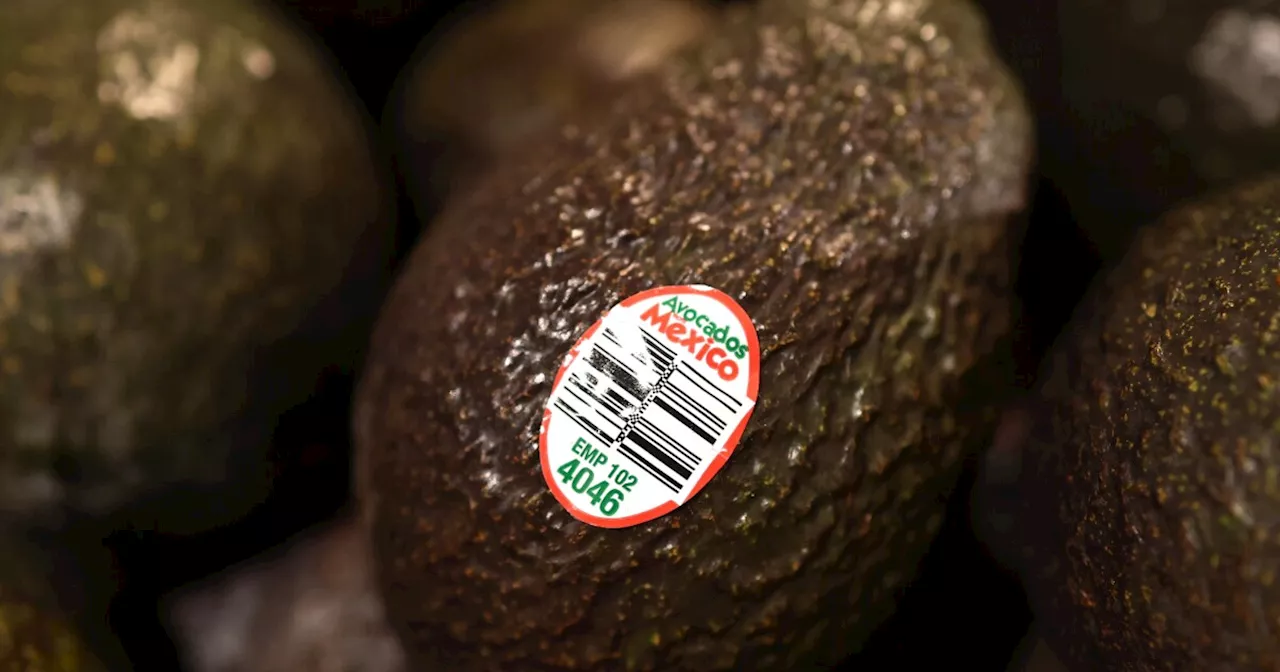President Trump's imposition of tariffs on China, coupled with threats towards Mexico and Canada, risks disrupting trade with these key partners, leading to increased prices for American consumers.
Every day, many people in the U.S. eat fruit grown in Mexico , use phones made in China , and live in homes built from lumber from Canada . Now, trade with those three countries could be significantly disrupted. President Trump has imposed a 10% tariff on goods imported from China , leading China to retaliate with tariffs of its own. Although Trump has agreed to postpone planned tariffs on Mexico and Canada for 30 days, he could still impose them after that period.
A tariff is a tax on goods imported from abroad. Despite Trump's assertions that these tariffs will be paid by other countries, Americans will ultimately bear the brunt of the increased costs. An analysis by the nonpartisan Tax Foundation revealed that if the tariffs Trump threatened in recent days are implemented, they would amount to an average tax increase of $1,720 per U.S. household.Tariffs on China will particularly impact consumers on a range of items. The U.S. imports a substantial amount from China — around $450 billion worth of goods — and Trump's 10% tariff could affect a wide array of products. Unlike the more targeted tariffs imposed during his first term, this round will have a more widespread impact on American consumers. Among the imports affected are numerous consumer goods, from electronics to clothing. U.S. businesses also rely heavily on Chinese imports for components, machinery, and equipment used in their production processes. Consequently, the cost of production in the U.S. will also rise. The Tax Foundation estimates that the tariffs on China alone will add $172 to the tax burden per U.S. household. 'So iPhones, iPads, tablets, laptops — all of that from Apple would now be hit, which is kind of a big escalation compared to how consumer goods were shielded from most of the first trade war tariffs,' says Erica York, vice president of federal tax policy at the Tax Foundation.For instance, importers pay a tariff based on the cost price of the item, not the full retail price. Apple might attempt to absorb the increased cost, or ramp up its production, especially since its competitor, Samsung, produces many of its phones in South Korea or Vietnam and won't face the same financial pressures. However, even if Americans don't see an immediate increase in the price tag of a product, there are still negative consequences for the U.S. economy. 'It means incomes and returns to shareholders in the U.S. economy are lower instead, because if businesses have to eat those higher costs, it means they have less to pay their workers,' says York. 'It means they have less to hire and expand employment, or less to invest. So no matter what channel the price impact takes, it's Americans who are hurt by the tariffs.' China responded with its own 15% tariffs on American coal and liquefied natural gas and 10% tariffs on crude oil, farm equipment, and certain other vehicles, effective February 10th. These countermeasures, while not as extensive as Trump's tariffs on China, will also have a detrimental impact on American finances.Following discussions with the leaders of Mexico and Canada on Monday, Trump agreed to a one-month postponement of the 25% tariffs. The specific goods subject to tariffs from Canada and Mexico remain unclear. However, any tariffs approaching the proposed 25% would significantly impact American wallets. In 2021, Mexico supplied almost two-thirds of U.S. vegetable imports and approximately half of U.S. fruit and tree nut imports. This indicates that prices for these groceries, and many more, will rise — including imported tomatoes, raspberries, bell peppers, and strawberries, as Mexico is a major supplier for these products. And then there are avocados: 90% of avocados consumed in the U.S. come from Mexico, so expect to pay more for them and guacamole. It's also winter, when a larger proportion of produce consumed in the U.S. originates from Mexico. Tomatoes are a crop that the U.S. produces abundantly in the summer but not as much in the winter. So imported tomatoes would also cost more. The U.S. heavily relies on fruits and vegetables imported from Mexico, especially during the winter. North American car manufacturing is also highly integrated among the U.S., Mexico, and Canada, potentially leading to disruptions in the automotive industry if tariffs are imposed
Tariffs Trade War China Mexico Canada Trump Economy Prices Imports Consumers
United States Latest News, United States Headlines
Similar News:You can also read news stories similar to this one that we have collected from other news sources.
 Trump Threatens Tariffs on Canada, Mexico, and Plans to Rename Gulf of MexicoPresident-elect Donald Trump announced plans for 'very serious tariffs' against Canada and Mexico, citing illegal immigration and drug trafficking. He also declared his intention to rename the Gulf of Mexico to the 'Gulf of America'.
Trump Threatens Tariffs on Canada, Mexico, and Plans to Rename Gulf of MexicoPresident-elect Donald Trump announced plans for 'very serious tariffs' against Canada and Mexico, citing illegal immigration and drug trafficking. He also declared his intention to rename the Gulf of Mexico to the 'Gulf of America'.
Read more »
 Trump Imposes Tariffs on Mexico, Canada, and ChinaPresident Trump signed executive orders imposing tariffs on imports from Mexico, Canada, and China, citing concerns over illegal immigration and drug trafficking. The tariffs will add 25% to imports from Canada and Mexico (with a 10% rate for Canadian energy products) and 10% on Chinese imports. The move is expected to impact both businesses and consumers as these countries are major suppliers of goods to the US.
Trump Imposes Tariffs on Mexico, Canada, and ChinaPresident Trump signed executive orders imposing tariffs on imports from Mexico, Canada, and China, citing concerns over illegal immigration and drug trafficking. The tariffs will add 25% to imports from Canada and Mexico (with a 10% rate for Canadian energy products) and 10% on Chinese imports. The move is expected to impact both businesses and consumers as these countries are major suppliers of goods to the US.
Read more »
 Trump Imposes Tariffs on Canada, Mexico, and China, Sparking Inflation FearsPresident Trump's imposition of tariffs on Canada, Mexico, and China has triggered concerns about potential inflation in the United States. Economists warn that these tariffs could lead to price increases for a wide range of goods, from gasoline and cars to clothing and alcohol. The tariffs are in response to what Trump says is a failure by these nations to address the flow of fentanyl and other drugs into the U.S.
Trump Imposes Tariffs on Canada, Mexico, and China, Sparking Inflation FearsPresident Trump's imposition of tariffs on Canada, Mexico, and China has triggered concerns about potential inflation in the United States. Economists warn that these tariffs could lead to price increases for a wide range of goods, from gasoline and cars to clothing and alcohol. The tariffs are in response to what Trump says is a failure by these nations to address the flow of fentanyl and other drugs into the U.S.
Read more »
 Trump Imposes Tariffs on Canada, Mexico, and ChinaPresident Trump's tariffs on imports from Canada, Mexico, and China have sparked widespread controversy. While Trump argues that the tariffs are necessary to protect American jobs and interests, critics warn that they will harm the U.S. economy and lead to higher prices for consumers.
Trump Imposes Tariffs on Canada, Mexico, and ChinaPresident Trump's tariffs on imports from Canada, Mexico, and China have sparked widespread controversy. While Trump argues that the tariffs are necessary to protect American jobs and interests, critics warn that they will harm the U.S. economy and lead to higher prices for consumers.
Read more »
 Here are some goods in the crosshairs of Trump’s tariffs on Mexico, Canada and ChinaThebusiness between the North American nations now exceeds China, totaling$1.8 trillion in 2023. That is far greater than the $643 billion incommerce that the U.S. did with China in that same year.
Here are some goods in the crosshairs of Trump’s tariffs on Mexico, Canada and ChinaThebusiness between the North American nations now exceeds China, totaling$1.8 trillion in 2023. That is far greater than the $643 billion incommerce that the U.S. did with China in that same year.
Read more »
 Trump Imposes Tariffs on Canada, Mexico, and China, Sparking RetaliationPresident Donald Trump has ignited an economic standoff with Canada, Mexico, and China by imposing steep tariffs on imports from these countries. Trump cites national security and the need to curb fentanyl production and illegal immigration as justifications, but the move has been met with swift retaliatory tariffs from the affected nations. The escalating trade war raises concerns about potential economic damage and disruptions to supply chains.
Trump Imposes Tariffs on Canada, Mexico, and China, Sparking RetaliationPresident Donald Trump has ignited an economic standoff with Canada, Mexico, and China by imposing steep tariffs on imports from these countries. Trump cites national security and the need to curb fentanyl production and illegal immigration as justifications, but the move has been met with swift retaliatory tariffs from the affected nations. The escalating trade war raises concerns about potential economic damage and disruptions to supply chains.
Read more »
